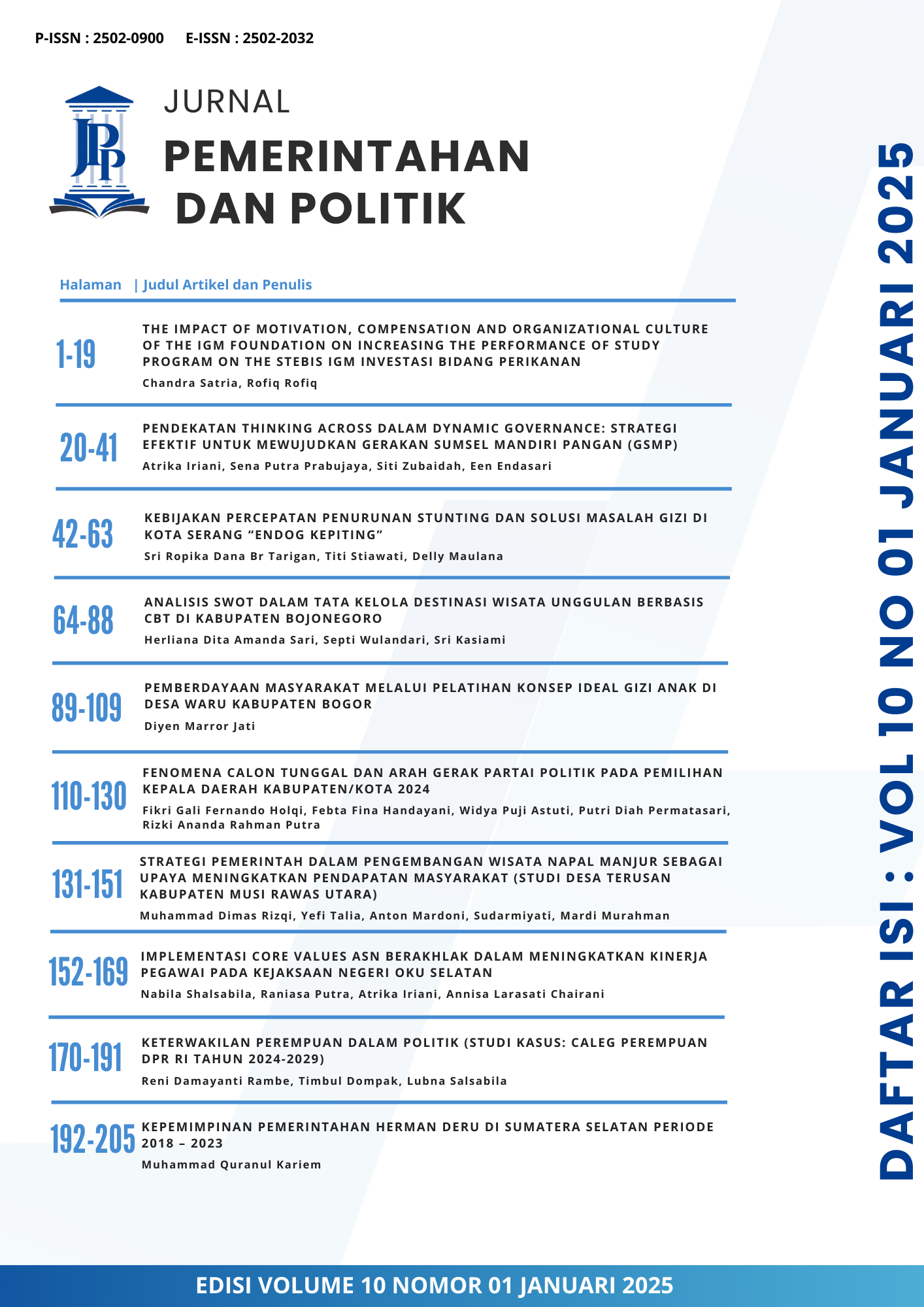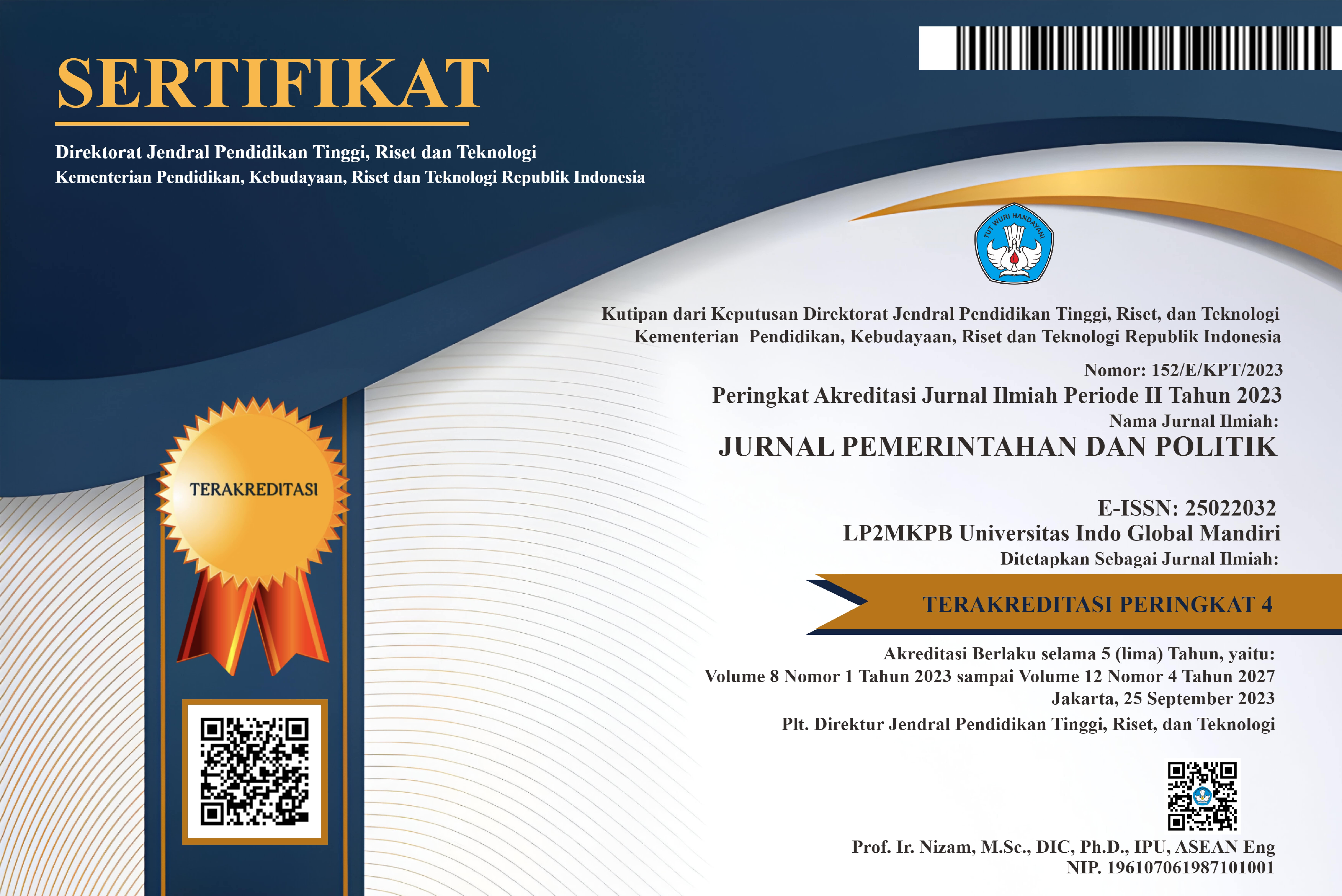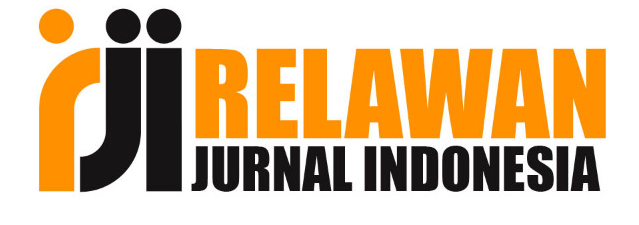Pemberdayaan Masyarakat melalui Pelatihan Konsep Ideal Gizi Anak di Desa Waru Kabupaten Bogor
DOI:
https://doi.org/10.36982/jpp.v10i1.5154Keywords:
Community Empowerment, Nutrition Class, Ideal ConceptAbstract
This article discusses the process of community empowerment through training on the ideal concept of nutrition for children at Posyandu Badra 1, Waru Village, Bogor Regency. The ideal concept in community empowerment is a long-term program by monitoring the activity calendar, such as the community as the beneficiary, so that the output of the community can grow and develop by living independently after consistently attending nutrition classes. This research method uses qualitative research because food independence is an individual taste for each child. This research wants to see how the community is consistent in providing the best nutrition for children during the golden age period for 0-2 years by looking at the community's consistency in attending nutrition classes with 10 people for 21 days. The purpose of this article is to evaluate the effectiveness of the CSR Health program in Community Empowerment in Waru Village. The results of this research article are that only 2-3 people in the community who took the nutrition class consistently attended the nutrition class until the end by look at the documentation of ideal concepts in child nutrition through a shared calendar. This research was quite effective for the first time a Community Empowerment Health CSR Program was held in Waru Village, Bogor Regency.
References
Carroll, A. B., & Shabana, K. M. (2010). The business case for corporate social responsibility: A review of concepts, research and practice. International Journal of Management Reviews, 12(1), 85–105. https://doi.org/10.1111/j.1468-2370.2009.00275.x
Carroll, A. B., Brown, J. A., & Buchholtz, A. K. (2018). Business & society: Ethics, sustainability, and stakeholder management (Tenth edition). Boston, MA: Cengage Learning
Carroll, Archie B. 2009. “A History of Corporate Social Responsibility: Concepts and Practices.” In The Oxford Handbook of Corporate Social Responsibility, Oxford University Press.
Djohani, R. (2003). Partisipasi, Pemberdayaan, dan Demokrasi Komunitas. Bandung: Studio Driya Media.
Freeman, RE, & Velamuri, SR (2006). Pendekatan baru terhadap CSR: Tanggung jawab pemangku kepentingan perusahaan. Dalam M. Morsing & A. Kak- abadse (Eds.), Tanggung jawab sosial perusahaan: Mendamaikan aspirasi dengan penerapan (hlm. 9–23). Palgrave Macmillan.
Fukuyama, Francis, 2002, Trust; Kebijakan Sosial dan Penciptaan Kemakmuran, Yogyakarta: Penerbit Qalam.
Gita, Maria dkk (2023). Program Corporate Social Responsibility (CSR) Bidang Kesehatan PT Freeport Indonesia di Era Pandemi COVID-19
Hikmat, Harry (2010). Strategi Pemberdayaan Masyarakat.Bandung.Humonira
Ife, Jim. 1995. Community Development:Creating Community Alternative,Vision, Analysis and Practice, Melbourne Longman. Australia. Pty Ltd
Januarti, I. dan Bunyaanudin, D. 2006. Pengaruh komitmen Organisasi dan keterlibatan kerja Terhadap hubungan antara etika kerja islam Dengan sikap terhadap perubahan organisasi. Jaai volume 10 no. 1, juni 2006: 13– 26.
Kemenkes RI. (2017). Status Gizi Balita dan Interaksinya. http://sehatnegeriku.kemkes.go.id/baca/blog20170216/0519737/status-gizi- balita-dan interaksinya
Mayne, John. 2017. “Theory of Change Analysis: Building Robust Theories of Change.” Canadian Journal of Program Evaluation 32(2): 155–73.
Oos. M. Annas, 2014.Pemberdayaan Musyawarah di Era Global. Alfabeta, Bandung
Plato. 1998. Republic. Terjemahan oleh Robin Waterfield. Oxford World's Classics.
Prastyanti, Shinta dan Mochammad Sugiarto. 2011.Malnutrisi danPemberdayaan Kelompok Perempuan, Acta diurnal. Vol 7 No 1.
Ratna, Nyoman Kutha. 2010. Metodologi Penelitian: Kajian Budaya dan Ilmu Sosial Humaniora Pada Umumnya. Pustaka Pelajar : Yogyakarta.
Sitorus S.H. dan Hidayat R., (2020), Berdaya di Era Pandemi: Peran Corporate Social Responsibilitydalam Penanggulangan COVID-19
Soekanto Soerdjono. 2009, Beberapa Teori Sosiologi Tentang Struktur Masyarakat, Jakarta : PT Raja GRafindo Persada
Sri, Titi dan Delly. 2025. Kebijakan Percepatan Penurunan Stunting dan Solusi Masalah Gizi di Kota Serang “ Endog Kepiting. Vol. 10 No. 1
Sudargo, T., Aristasari, tira, & Afifah, aulia. (2018). 1000 Hari Pertama Kehidupan. UGM PRESS. Copyright
Sugiyono .2007.Metodologi Penelitian Administrasi. Bandung: Alfabeta
Tsuchida, T., Yoshioka, T., Sakuma, S., Takeguchi, T., & Ueda, W. (2008). Synthesis of biogasoline from ethanol over hydroxyapatite catalyst. Industrial & Engineering Chemistry Research, 47(5), 1443-1452.
Ulum, I. (2016). Intellectual Capital (Model Pengukuran, Framework Pengungkapan, dan Kinerja Organisasi) - UMM Institutional Repository. Universitas Muhammadiyah Malang Press.
Usman, H., & Mustafa, S. W. (2019). Pengaruh Intellectual Capital Terhadap Kinerja Keuangan Dan Nilai Pasar Perusahaan Yang Listed Di Jakarta Islamic Index. AkMen JURNAL ILMIAH, 16(4), 529–535.
Wirutomo, Paulus, dkk. (2012). Sistem Sosial Indonesia. Jakarta: UI Press.
Zubaedi. 2013. Pengembangan Masyarakat Wacana dan Praktek. (Jakarta:Pustaka Kencana Prenada Media Group)









